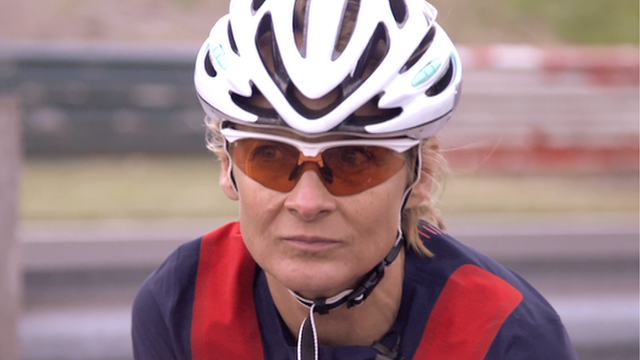Get Inspired: My Paralympic journey began over coffee
- Published
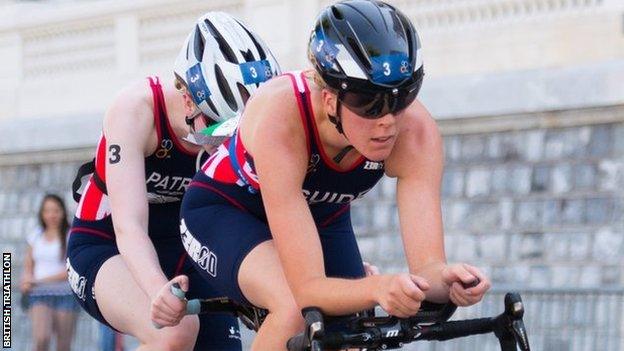
As at London 2012, both athlete and guide will be eligible for medals at the Rio 2016 Paralympics
Triathlete Hazel Smith was tantalisingly close to competing at the Glasgow 2014 Commonwealth Games - she was a reserve on Team Scotland.
She had won the national age-group sprint and standard distance triathlon titles that year, but she admitted she lacked confidence in her ability to race at an international level.
"In my own mind I wasn't going to make the Olympics," said the 30-year-old.
However, she was about to embark on a life-changing journey that would see her land a place on the British team at the Rio 2016 Paralympic Games.
As an able-bodied athlete, Smith is to race in the PT5 class, guiding Alison Patrick - a 29-year-old visually-impaired triathlete from Dunfermline.
Against the backdrop of Copacabana Beach, the pair will swim 750m tethered together, cycle 20k on a tandem, and complete a 5k tethered run.
The "crazy, rollercoaster" journey to Rio started about two years ago when the pair met for a coffee in Edinburgh, where Smith is based.
The germs of friendship were planted and - after a quick Google search on "how to ride a tandem" - Smith dipped her toe into the world of paratriathlon.
Smith simply planned to help Patrick with some bike training, but she was about to be thrown in at the deep end.
Paratriathlon was selected as a new sport to be included in the Paralympics in Rio 2016, and Smith decided to apply to British Triathlon's Guide 2 Gold talent identification programme.
"Things were about to get serious," she said.
Patrick proved she could be a formidable force by winning the PT5 event in the 2014 Para-triathlon World Championships with another guide.
At the beginning of 2015 - after an intense selection day of physiological and psychological testing - Smith was sent to a Lanzarote training camp with the GB paratriathlon team.
Smith was to find learning to be a guide, and competing for a place at Rio, would be a complicated, stressful, and life-affirming experience.
"I just got chucked in with the group," she said.
"You've got people in wheelchairs, people with no legs or one arm, and initially I thought I was going to have to help loads of people.
"I was worried it would be sensitive or awkward if I said something stupid."
It was a tough two weeks with some steep learning curves, but she left Lanzarote feeling part of an incredibly close-knit team.
"The camaraderie and capability of the group is just incredible," she said. "It really is an amazing bunch of people."
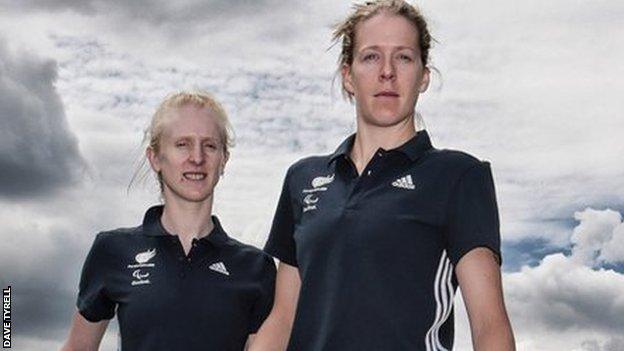
Alison Patrick and Hazel Smith
Back in the UK, Smith needed to prove that she had the right attributes to provide both mental and physical support to an elite athlete throughout training, pre-race and during competition.
Smith was learning what to say - and what not to say - to help them both work well as a pair. She needed to swim as fast as Patrick while ensuring she stayed on course.
She had to grasp the technical aspects of the tandem, and how to guide Patrick over mixed terrain while they were running.
"When I'm racing with Alison, it's her race but it's our race," she said.
"I'm thinking about myself, yet I'm also thinking about her.
"The build-up can be stressful - if I do anything wrong it could impact on her.
"It's more mentally fatiguing than racing by myself and I'll be quite tired for a few days afterwards."
In May 2015, Smith was one of three UK Sport Lottery funded guide athletes to be added to the Great Britain Paratriathlon team.
These guides and the two para-athletes, Patrick and Melissa Reid, were swapped about during training and for competitions by British Triathlon to ensure the best possible pairings and to help the athletes improve.
This year, Patrick and Smith won both the World and European paratriathlon championship titles in the PT5 event.
Six months ago, in order to commit to training schedules, Smith went part-time in her job with engineering firm Aecom, and she took a sabbatical for August and September.
"I was based in Loughborough during the whole period of when they were doing the selection and I felt the pressure," she said.
"Alison and the other athletes also have an impact on who they want as guides.
"You're constantly thinking I need to impress them, and I need to be at my best all the time.
"So it was quite a stressful time."
Smith had come a long way since that two-hour chat with Patrick over a coffee.
In July 2016, just weeks before the Rio 2016 Paralympic Games opening ceremony, she received confirmation that she would compete as Patrick's guide on the GB team.
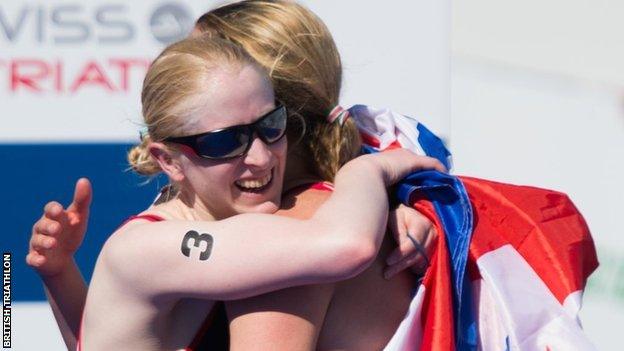
Patrick and Smith are the reigning world and European champions in PT5 paratriathlon
Sighted guides often get no podium recognition, yet all athletes who guide para-athletes at Rio 2016 will be eligible for medals (as was the case in London 2012).
So will Smith be chasing the glory of a medal for herself?
"There are two different sides to this," she said.
"It's just been such a massive learning experience and an amazing life experience.
"It's making me emotional talking about it - for me I've already won a medal.
"But obviously we're out to chase those Australians down.
"It will be incredibly special if we medal in Rio, especially as we'll have each other to celebrate with."
The paratriathlon competitions at the Rio 2016 Paralympics are scheduled to take place from 10-11 September 2016 at Fort Copacabana.
- Published21 September 2018
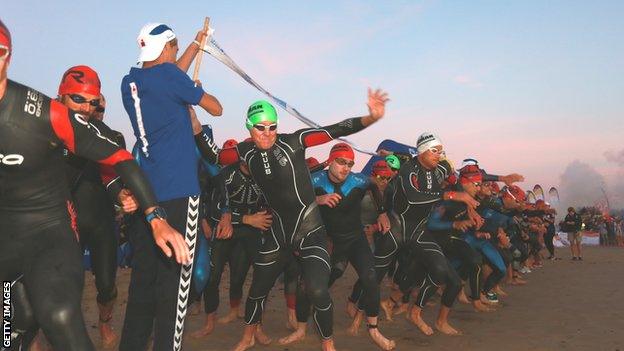
- Published27 May 2016
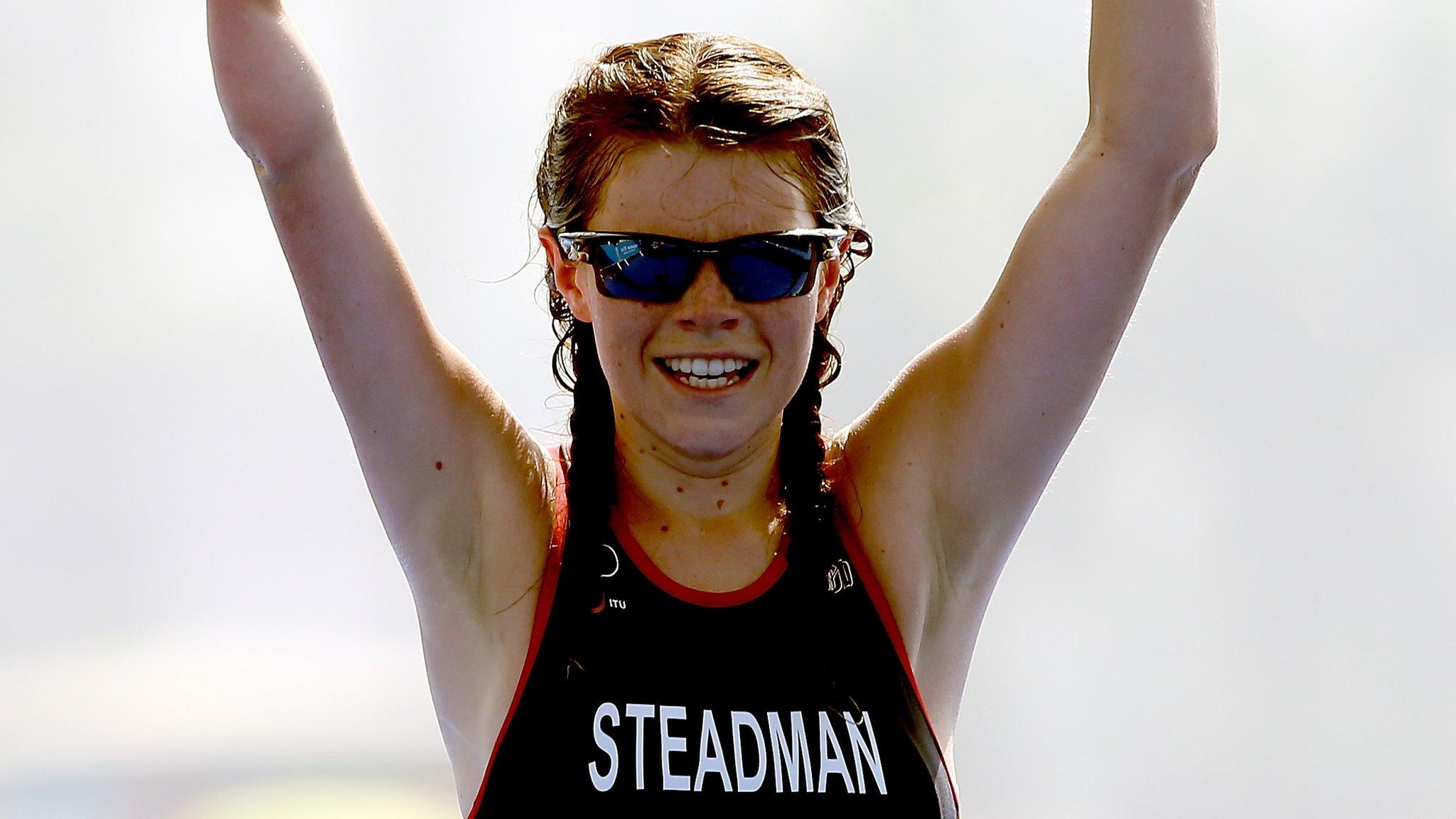
- Published31 August 2016
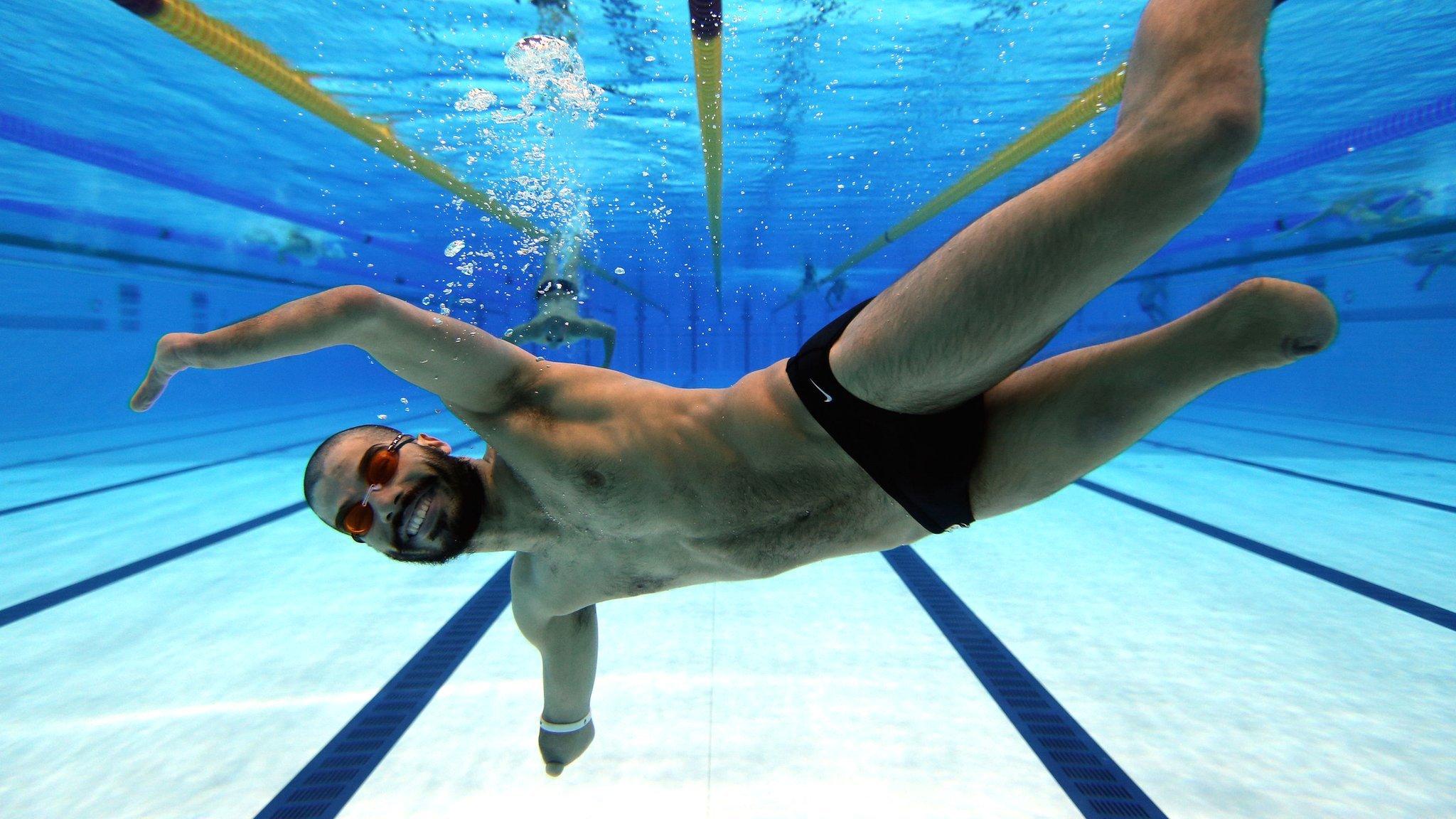
- Published11 June 2016
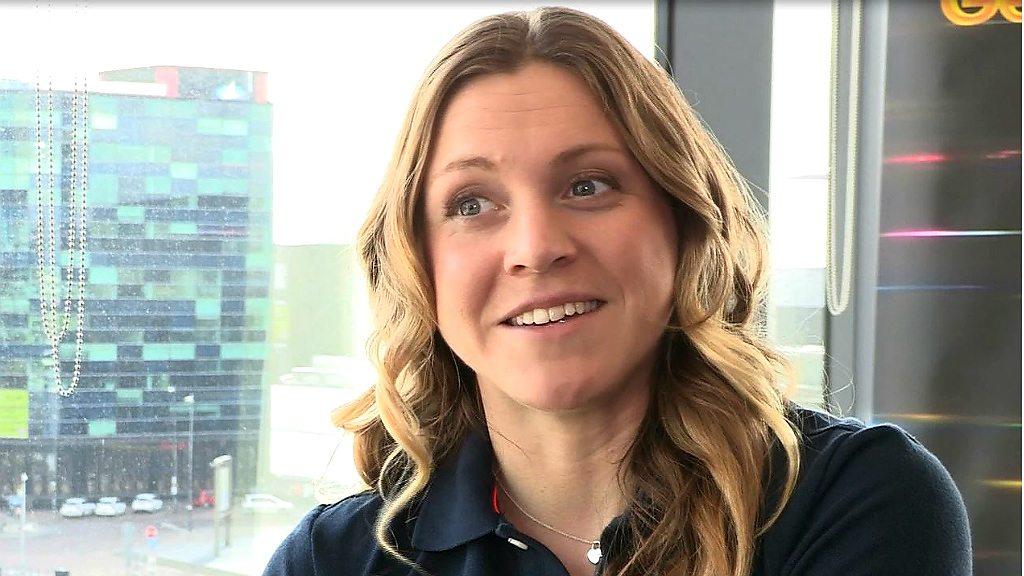
- Published3 March 2016
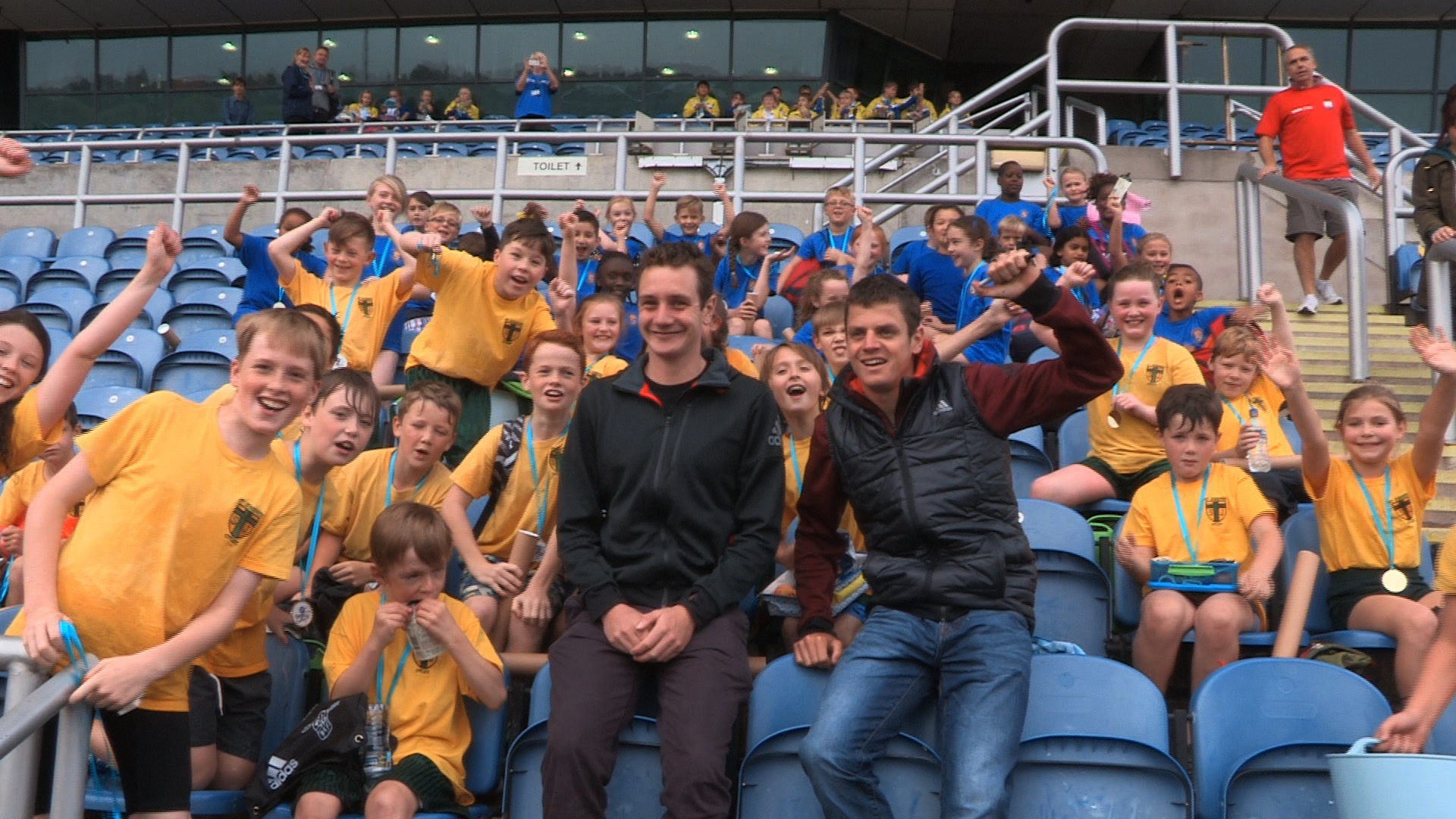
- Published7 September 2015
